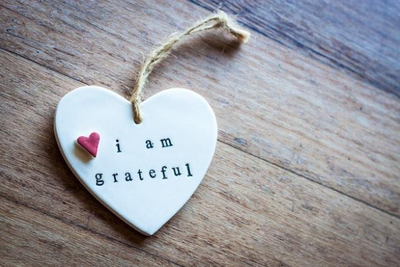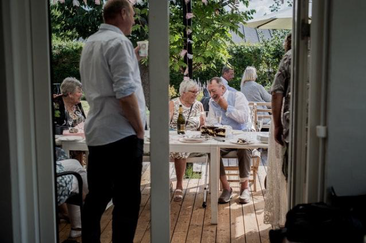 The quality of child-parent relations is critical not just for emotional bonding, but also for learning of all types. (Tweet it!) So problems arise, says Erika Christakis, author of The Importance of Being Little, “when the emotionally resonant adult–child cueing system so essential to early learning is interrupted—by a text or a quick check-in on Instagram (https://bit.ly/2KsE7sm).” In one experiment that tested the impact of parental cellphone use on children’s language learning, thirty-eight mothers and their 2-year-olds were brought into a room. The mothers were told that they would need to teach their children two new words (blicking, which was to mean “bouncing,” and frepping, which was to mean “shaking”) and were given a phone so that investigators could contact them from another room. When the mothers were interrupted by a call, the children did not learn the word, but otherwise they did. Other experiments have shown similar results. Occasional parental inattention is not catastrophic, says Christakis, “…but chronic distraction is another story. Smartphone use has been associated with a familiar sign of addiction: Distracted adults grow irritable when their phone use is interrupted; they not only miss emotional cues but actually misread them.” Fixing the problem won't be easy, but Christakis offers a piece of good news: children are prewired to get what they need from adults, and young children will do a lot to get a distracted adult’s attention. Meanwhile, her advice: “Parents should give themselves permission to back off from the suffocating pressure to be all things to all people. Ditch that soccer-game appearance if you feel like it. Your kid will be fine. But when you are with your child, put down your damned phone.” What do you do when both your child and your phone are competing for your attention? To join the conversation, click "comments" above. If you would like to learn more about creating a habit around masterful communication, check out our online learning programs.
0 Comments
 Saying “thank you” is the ultimate win/win. Research shows that expressing gratitude increases feelings of personal well-being. (Tweet it!) As Americans approach our official day of giving thanks, perhaps all of us can take a moment to consider how we might make gratitude an ongoing part of our lives. If you are looking for someone to practice your “thank you” on, start close to home. John Gottman, Executive Director of the Relationship Research Institute of Seattle says: “Masters of relationships have a habit of scanning the world for things they can thank their partner for. People whose relationships go down the tubes scan the world for their partner’s mistakes.” What happened when you upped the level of thanks you expressed to people around you? To join the conversation, click "comments" above. If you would like to learn more about creating a habit around masterful communication, check out our online learning programs.  With holiday dinners around the corner, many are dreading conversations about loaded—possibly political—topics. At times avoidance is the best policy, and perhaps you can just let someone else sit next to Uncle Ned or Aunt Matilda. But, if the relationship is such that you really want to have a calm and respectful exchange of ideas, Eben Weitzman, graduate program director of conflict resolution at University of Massachusetts Boston, has some advice (https://bit.ly/2RmFuJG). “If what you want to do is get to a mutual understanding, really inquire to understand,” he says. “Listen with interest, and without judgment.” Some things you could say:
If things get heated despite your best efforts, take a break. Withdraw for a while, until your adrenaline stops pumping. Deep listening is the only way out of deep conflict. And listening is too often the first casualty during contentious conversations. (Tweet it!) So, try listening until you can tell their story better than they did. What holiday conversation are you dreading and how do you plan to handle it? To join the conversation, click "comments" above.  Studies show that high-quality friendships provide positive health benefits, including lower incidences of chronic illnesses, higher levels of happiness and lower mortality rates (https://bit.ly/2PBqFle). Strong social support networks can also be a hedge against stress, depression and anxiety, say researchers (https://bit.ly/2PBqFle). Many of us are reflecting fondly on old friendships and wondering if they can be revived. (Tweet it!) In our electronic world, friends are often just a click, a text, or an email away—but what’s the best way to reach out, if at all? Writing in The New York Times, Anna Goldfarb consulted with experts, who offered these tips:
Finally, be prepared for all outcomes. It takes two to keep a relationship going, so the goal of renewal has to work for you both. Have you ever reached out to an old friend? How did you initiate and what was the outcome? To join the conversation, click "comments" above. |
Archives
July 2024
Categories
All
|
|
Glaser & Associates, Inc.
Executive Offices 1740 Craigmont Avenue, Eugene, OR 97405 541-343-7575 | 800-980-0321 [email protected] |
© 2019 Glaser & Associates. All Rights Reserved.


 RSS Feed
RSS Feed